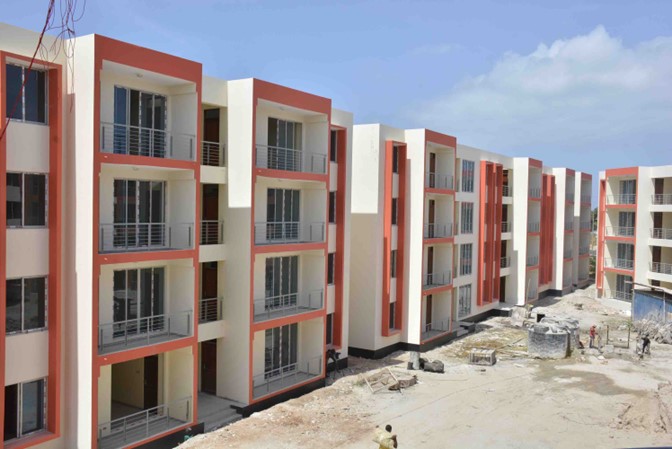Introduction
Africa is rising, and you have to be part of the excitement. The continent’s economy is growing rapidly, fueled by technological innovation, abundant natural resources, and a young, vibrant population like yourself.
As Africa evolves into an economic powerhouse, there are major opportunities across industries waiting for you to seize. In this listicle, this article highlights the top 10 most profitable sectors for you to invest in. From fintech to agriculture, these booming industries offer strong growth prospects for entrepreneurs and investors like you.
Beyond financial gain, investing in these sectors can also contribute to job creation, infrastructure development, and socioeconomic progress across the continent. Dive in to discover why they were picked and get key details on each sector’s prospects, market trends, regulatory landscape, investment incentives, and success stories from prominent businesses operating within them.
1. Fintech

Africa’s fintech industry is experiencing an unprecedented surge, and you’re right in the heart of it. Investments skyrocketed to almost a billion in 2023 and are expected to grow by 9% from 2024 to 2028, driven by high mobile penetration and financial inclusion initiatives.
Pros:
- Provides large underbanked population
- Supports regulations
- Rises digital payments and mobile money
Cons:
- Face threat of cybersecurity
- Limits low banking penetration in rural areas
Key fintech services like mobile banking, lending apps, cross-border remittances, and agency banking are witnessing remarkable growth across Africa. Citizens across the continent, especially those in underserved rural areas, stand to benefit the most from improved financial access facilitated by fintech innovations. If you’re looking for high-growth opportunities in emerging markets, you can capitalize on the exponential growth potential of Africa’s fintech sector. Leaders in the market include Chipper Cash, OPay, Flutterwave, and Wave.
2. Agriculture

Africa boasts 60% of the world’s uncultivated arable land, presenting a massive opportunity for you to tap into. Rapid population growth is driving food demand, and digital innovations like agtech are enhancing productivity.
Pros:
- Fuels rising food demand
- Provides untapped resources
- Drives government support for sector
Cons:
- Face challenges with logistics
- Experience problems with climate change
- Lacks infrastructure
Focus areas like cold storage, greenhouse farming, agro-processing, farm mechanization, and e-commerce exports offer strong opportunities for you considering diversifying your portfolios into the agriculture sector. Key players in this space include Dangote’s Tiger brands. Investing in African agriculture not only promises attractive returns but also contributes to food security and economic development across the continent.
3. Renewable Energy

Africa is abundant in solar, hydro, and wind resources, offering an ideal landscape for sustainable energy solutions.
Pros:
- Reduces clean energy costs
- Supports policies
- Provides unmet demand
Cons:
- Requires high upfront costs
- Provides intermittent supply (for solar/wind)
- Limits grids
Renewables are crucial for expanding energy access sustainably, and innovations like solar, mini-grids, and off-grid solutions are key areas to explore. Notable innovators driving growth include ACWA Power, JUWI South Africa, and Engie. If you seek opportunities in clean energy and environmental sustainability, you can find promising investment avenues in Africa’s renewable energy sector. Residents across Africa, particularly those in remote areas with limited access to traditional energy sources, stand to benefit significantly from reliable and affordable renewable energy solutions.
4. Real Estate

: Rapid urbanization across Africa is driving a real estate boom, and you can ride the wave of opportunity.
Pros:
- Provides affordable housing backlogs
- Supports government policies like Kenya’s affordable housing initiative
- Drives strong demand driven by young demographics
Cons:
- Increases bureaucracy
- Limits infrastructure in some regions
- Limits accessing credit
Fast-growing cities and a rising middle class are demanding quality housing, creating opportunities in areas like affordable housing, logistics and warehousing, co-living spaces, and commercial office spaces. Top countries to invest include Nigeria, Ghana, Egypt and South Africa. Capitalize on the urbanization trend and real estate development in Africa and benefit from attractive returns and portfolio diversification. Urban residents, especially young professionals and families, stand to benefit the most from improved housing options and urban amenities.
5. E-Commerce and Retail

Mobile and internet penetration are soaring across Africa, paving the way for exponential growth in e-commerce.
Pros:
- Drives rapid smartphone adoption
- Engages youthful digital natives
- Shifts online shopping and cashless payments fast
Cons:
- Struggle shipping and logistics
- Lacks branches of some brands
- Limits low card penetration
Innovative solutions around payments, last-mile delivery, and linking informal retailers present opportunities for growth. Notable players leading the way include Jumia, Copia, and MarketForce. Do you seek exposure to Africa’s digital economy and e-commerce revolution? Find compelling investment opportunities in the e-commerce sector. Consumers across Africa, particularly those in urban centers, stand to benefit from greater convenience and access to a wider range of products and services through e-commerce platforms.
6. Entertainment & Media

With a rising youth population and increased internet access, there’s a growing demand for African music, Nollywood films, sports, and online content.
Pros:
- Provides large and young population
- Drives rapid smartphone adoption
- Grows online streaming platforms.
Cons:
- Risks piracy
- Limits cinema infrastructure
- Reduces disposable incomes limiting consumer spend
Opportunities abound in music production, film/TV distribution, sports betting, and advertising across traditional and digital media. African creatives and content producers, as well as consumers across the continent and in the diaspora, stand to benefit from the vibrant entertainment industry. Explore opportunities in media and entertainment startups, production studios, and content distribution platforms.
7. Mining

: Abundant mineral deposits from gold to cobalt to natural gas offer strong prospects for economic growth, provided governance challenges can be addressed.
Pros:
- Provides vast mineral wealth
- Increases rising commodity prices
- Creates opportunities to build downstream industries
Cons:
- Challenges governance and corruption
- Impacts environmentally
- Fluctuates global demand
From South Africa to DRC to Ghana, leading minerals include gold, diamonds, copper, cobalt, iron ore, oil, and gas. African governments and citizens stand to benefit from increased revenue generation and job creation in the extractive industries, although sustainable and transparent governance practices are essential for maximizing these benefits. Consider opportunities in mining companies, exploration projects, and mineral trading ventures across Africa.
8. Manufacturing

: The “Made in Africa” initiative aims to drive industrialization and job creation by supporting SMEs and improving the business environment.
Pros:
- Reduces low-cost labor
- Provides large domestic markets
- Incentivizes government incentives like special economic zones
Cons:
- Requires expensive financing
- Limits inadequate infrastructure and skills
- Compete with competition from Asia imports
Focus areas include food processing, textiles and garments, automobiles, machinery, and heavy equipment. African entrepreneurs and workers stand to benefit from increased employment opportunities and the growth of local industries, which can contribute to economic diversification and resilience. If you want to support Africa’s industrialization agenda and capitalize on the continent’s manufacturing potential, you can explore investment opportunities in manufacturing plants, industrial parks, and value-added processing facilities.
9. Transport & Logistics

Young startups across Africa are revolutionizing logistics by leveraging digital solutions to address infrastructure challenges. By digitizing haulage, optimizing routes with technology, and streamlining B2B logistics, these startups are paving the way for efficient and cost-effective supply chain management.
Pros:
- Drives booming e-commerce and interstate trade
- Utilizes youthful digital workforce
Pros:
- Drives booming e-commerce and interstate trade
- Utilizes youthful digital workforce
Cons:
- Limits poor roads, rail and port infrastructure
- Fragments markets lacking integration
- Limits poor roads, rail and port infrastructure
- Fragments markets lacking integration
Tech-focused solutions encompass fleet management, warehousing, last-mile delivery, and route optimization, offering lucrative opportunities for investors seeking to capitalize on the logistics sector’s growth potential. You can benefit from investing in innovative logistics startups that are reshaping the way goods are transported and distributed across Africa’s diverse markets.
10. Education

Africa’s fast-growing school-age population, coupled with the adoption of online learning, is creating a wealth of opportunities, particularly in vocational and tertiary education. As demand for quality education continues to rise, there is a growing need for innovative solutions in areas like vocational training, edtech, and the privatization of K-12 and higher education institutions.
Pros:
- Supports government policies on access and affordability
- Drives rising private sector participation.
Cons:
- Lacks qualified instructors
- Limits funding, Raises concerns around quality assurance.
Explore investment opportunities in educational startups and institutions that are at the forefront of transforming Africa’s education landscape. Key focus areas include vocational training programs tailored to emerging industries, edtech platforms offering online courses and resources, and the privatization of schools and universities to enhance access and quality.
Overview of Top 10 Most Profitable Sectors In Africa

Botswana boasts an impressive cadre of entrepreneurs who have achieved remarkable success and accumulated substantial wealth. Among the wealthiest individuals in Botswana are figures like Abdul Satar Dada, celebrated for his wide-ranging business ventures and an estimated net worth of $50 million, and the Khama family, with a net worth of around $20 billion, primarily stemming from their extensive property holdings. These entrepreneurs have significantly bolstered the economy through their investments in diverse sectors, including retail, print and publishing, car dealerships, and more. Their narratives stand as a testament to the spirit of entrepreneurship and the potential for wealth generation in Botswana.
How to Choose Sectors to Invest In
When choosing which sectors to invest in across Africa’s booming economies, key factors to consider include:
- Prioritize emerging sectors experiencing rapid expansion
- Consider demographics, rising consumer demand, pressing societal needs
- Favor countries supporting entrepreneurship and adoption of technology
- Look for policies and incentives aimed at supporting key sectors
- Analyze the number and success of high-potential startups in the space
- Consider issues like energy, internet, and transport enable private sector growth
Pros and Cons of Investing in Africa
Africa offers immense opportunities but also has real risks to consider:
Pros:
- Provide large addressable markets
- Drive fast adoption of mobile/digital trends
- Support young, tech-savvy population
- Tap untapped resources
Cons:
- Increases bureaucratic hurdles
- Face corrupt systems
- Struggle with limitation of infrastructure in some regions
- Face political uncertainty in pockets of countries
What to Watch Out For
- Destabilize political stability around elections and coups in some nations
- Expose to global commodity price shocks macroeconomically
- Threaten cybersecurity as digital adoption increases
- Widen talent gaps as skills fail to keep pace with rapidly changing economy
- Hinder business growth through bureaucratic red tape and corruption
Pro Tips
Tips for succeeding in Africa’s high-growth markets:
- Take a long-term approach: Be patient and persistent to overcome structural challenges
- Prioritize relationships and trust: Move at the speed of relationships and invest in local partnerships
- Tailor business models: Adapt products and services to infrastructure constraints and consumer preferences
- Leverage technology: Mobile-first approaches and agile innovation practices are key
- Understand policy landscape: Stay updated on political and regulatory shifts across markets
Recap
Africa presents a multitude of investment opportunities across various sectors including fintech, agriculture, renewable energy, real estate, e-commerce, entertainment, mining, manufacturing, transport, and education.
Despite challenges like political instability and infrastructure constraints, investing in Africa can foster economic growth and address societal needs. With a burgeoning population and technological advancements, investors have the chance to tap into emerging markets, contribute to sustainable development, navigate risks, and foster innovation.
Consider the pros and cons, do not forget key points to watch out for and use the pro tips provided for your venture!


















